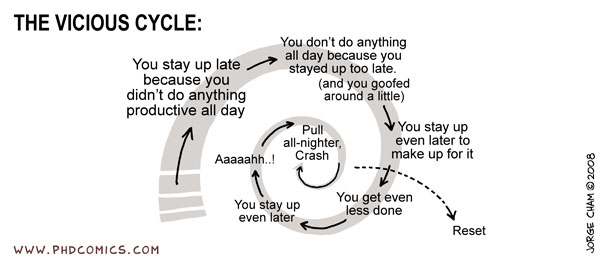What is your perfect daily schedule?
When recently reading a post on Thomas Franks’s amazing website collegeinfogeek.com, I came across his suggestion “Do a “Typical Day/Week” Writing Exercise” (https://collegeinfogeek.com/be-mindful-of-your-path/). In this exercise, you write down what you would like your typical daily schedule to look like in an ideal world. So I started doing just that. And surprisingly (or not?), my ideal daily schedule matched my actual one quite well. I like to have time on my own in the morning, where I can read news, check and read new research papers, work on some projects. And then from late morning onwards I like to interact with students, which is usually a lot of fun (especially if the students are interested and keen to interact). And then I look forward to my (afternoon) lunch and some sports activity after work, followed by some more work on some projects, and then maybe reading something or listening to some music.
However, there are two notable deviations from my ideal daily schedule. First, I often fail to follow this schedule, partly due to external circumstances and partly due to lack of self-discipline…. Second, I always go to sleep way too late and then wake up later than I would like and end up sleepy for much of the day.
This cartoon might look familiar to you.
Check out more at http://phdcomics.com/
So this is why I came up to try to start a new habit of going to sleep early, and wake up really early. In fact, I took up a 30 day challenge to wake up at 5 am every day. Why 30 days? Well, apparently it takes 30 days to build a new habit (check out this amazing podcast: http://www.asianefficiency.com/habits/productivity-is-a-habit/). Of course, that means going to bed earlier, but luckily I don’t really need a lot of sleep. But if like me you also try to chronically shortcut your sleep, consider this scary research article:
Ehsan Shokri-Kojori et al.β-Amyloid accumulation in the human brain after one night of sleep deprivation. (2018)
Anyway, the results so far have been amazing. By 9:30 am I have already gotten so much done that I feel very relaxed about the rest of the day. And actually, I don’t really miss the extra hours in the nighttime, because honestly, they were mostly spent wasting time.
So this exercise of doing a typical day writing exercise really seems to work. And it can also help you decide what kind of job you would like to do in the future. Do you want to have a daily routine? Or do you want to have a constantly changing schedule and do different things every day? And most importantly, do something to achieve it.
Try the exercise now! Who knows what you might discover?
